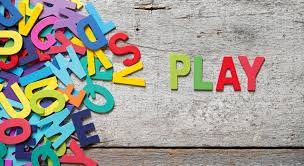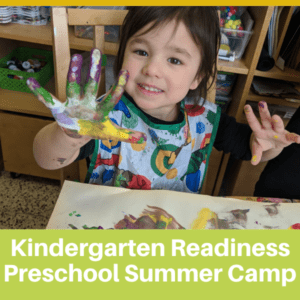
Learning a language can sometimes seem very boring and tiring for children, but why not add fun to learning?
Here are some common games that require minimal materials and can be played while learning any language. These games are typically for older children but can be modified based on a child’s understanding and level of competency. They can also be easily adapted for children to play online.
Twenty Questions
Twenty Questions is a game that can help improve an individual’s oral communication, vocabulary, grammar and pronunciation.
How to Play: One person thinks of a word, and the rest of the players collectively get to ask 20 yes or no questions in the target language. The player that guesses the word, gets to go next.
Pictionary
Pictionary can help improve vocabulary and speaking skills.
How to play: Write a list of words on individual pieces of paper and place them in a hat or box. Split players into two groups. Group one will choose one player to draw first, while the remaining group members have to guess what they are drawing in the target language. A time limit can be placed for each group to make it more competitive. Once the word has been guessed, it is group two’s turn.
Word Jumble
This game will help with spelling, writing, and learning word order
How to play: This game requires a little bit of preparation ahead of time. You will start off by writing sentences on coloured sheets of paper or with a coloured marker as each sentence should be in a different colour. Once you have written the sentences down, you will cut them up so that one word is written on each piece of paper. Place the papers in separate bags or cups.
The number of sentences depends on the number of players. Players can play individually, in pairs or in teams.
To play, each team will receive their own cup of words and will have to rearrange them to create the original sentences in as little time as possible. You can set a time limit depending on the child’s age or level of understanding of the target language.
Charades
This game improves vocabulary and speaking skills.
How to play: Start off by writing words in the desired language on individual pieces of paper and place them in a hat. To make this game easier, words can be based on a chosen theme.
Split players into two teams and decide which one goes first. The first player in the team will pick out a paper and will have to act out whatever is written. If a sentence is written, the player can indicate with their fingers, how many words there are. You may set a time limit, if the team guesses the word within the time limit, they get a point. If they do not guess correctly, they lose a point.
Hangman
This game helps with spelling.
How to play: Think of a word or phrase, and instead of writing the word down, replace each letter of the with dashes. Children have to guess the word or phrase by suggesting individual letters. If they guess the correct letter, write it in its place. If they suggest an incorrect letter, write it on the side and start drawing a hangman. Each incorrect letter equals one body part. If they guess the word before the man is drawn, they win, if the man is drawn before they guess the word/phrase, they lose.
For more educational posts visit our Educational Posts Page
To keep up with new blog posts you can follow us on Facebook or Instagram
Or, sign up for our newsletter below for school updates.
Get updates on new classes, hosted events, and more.










